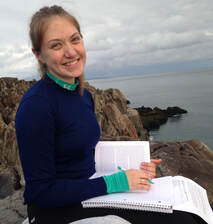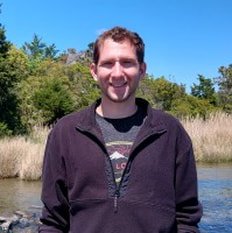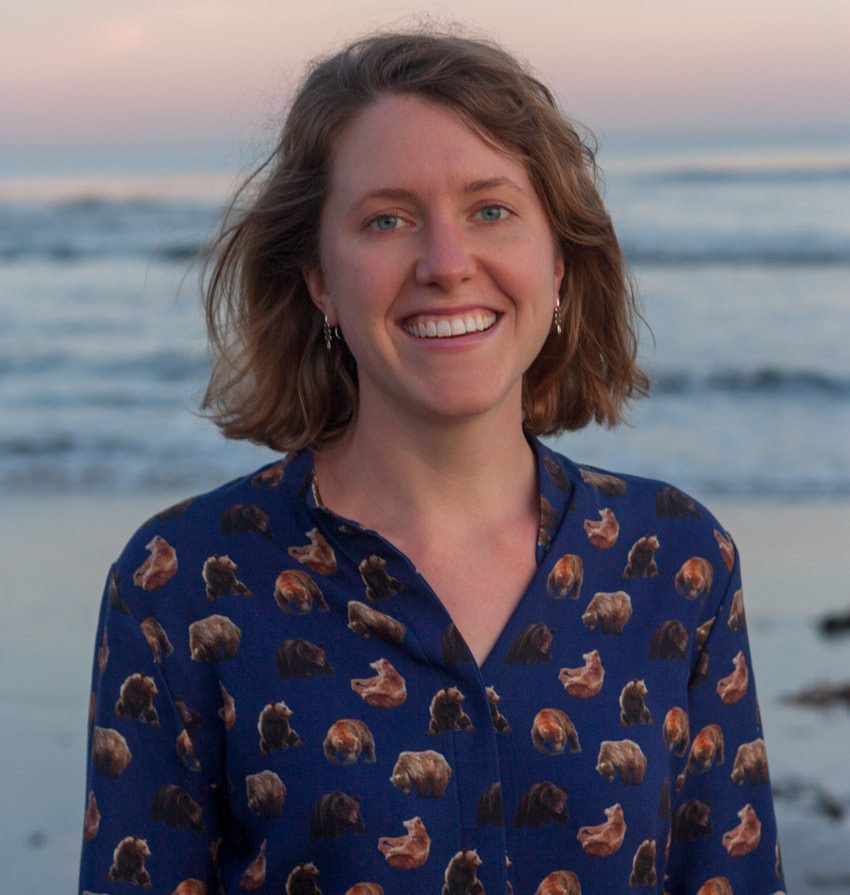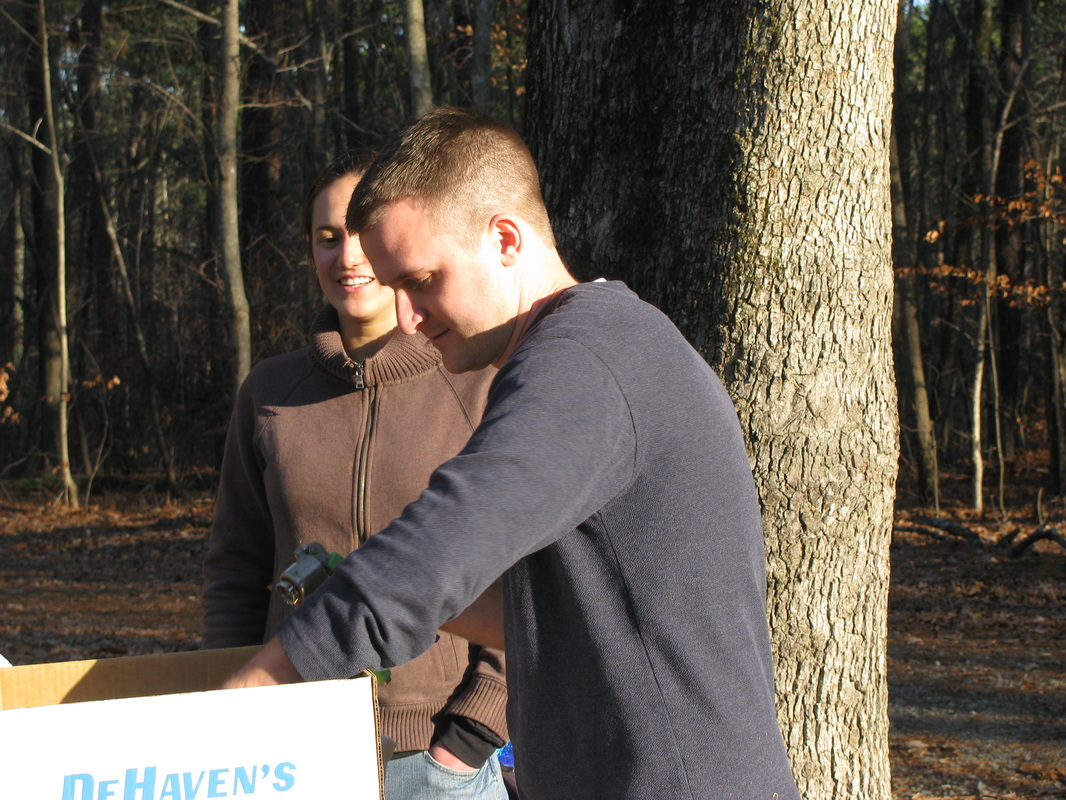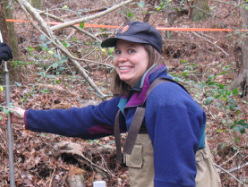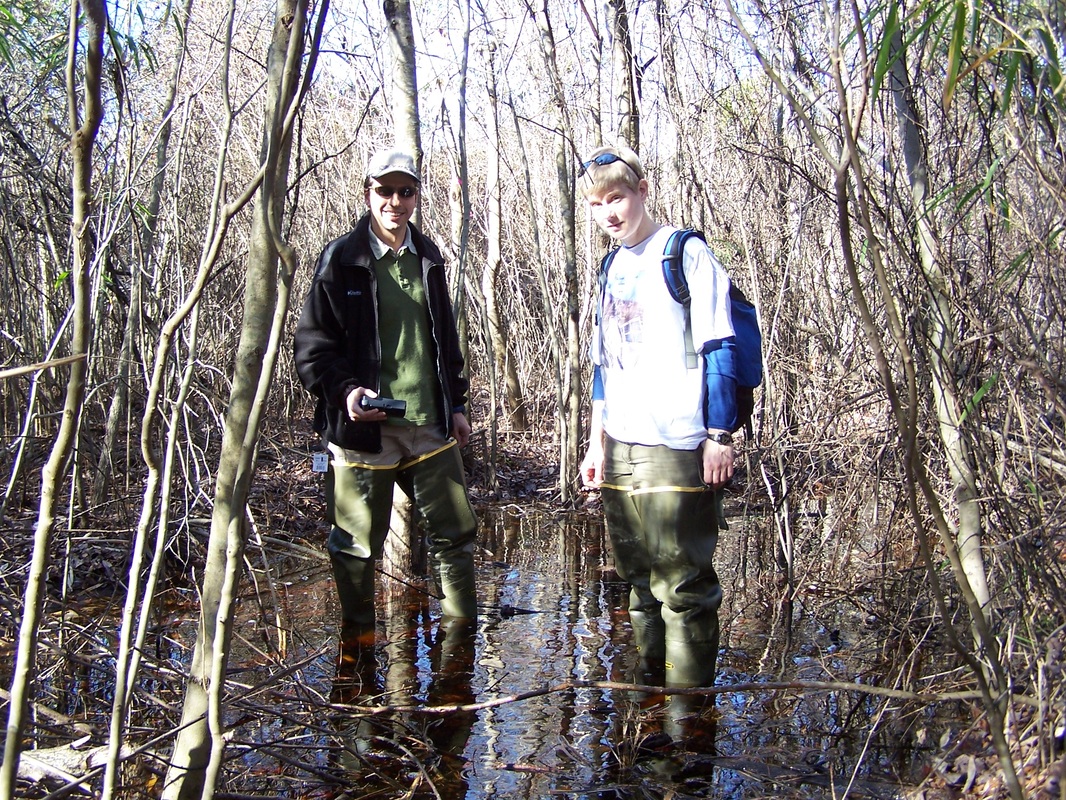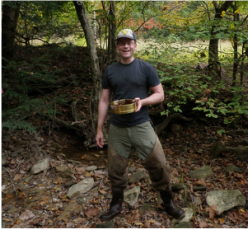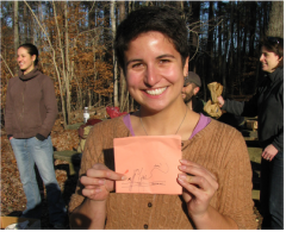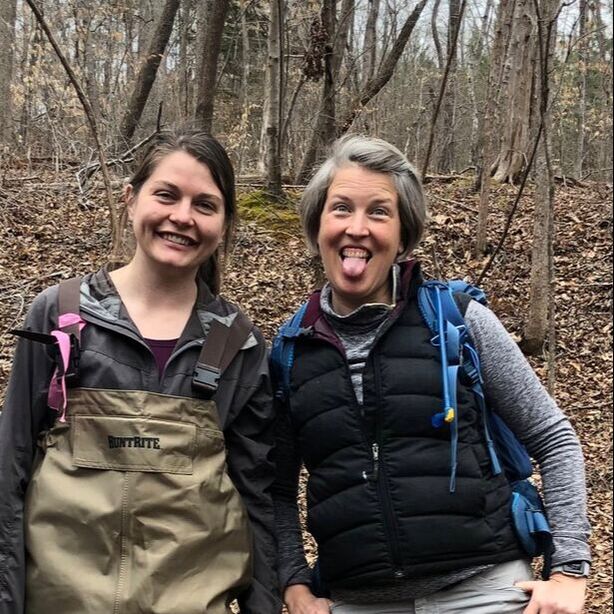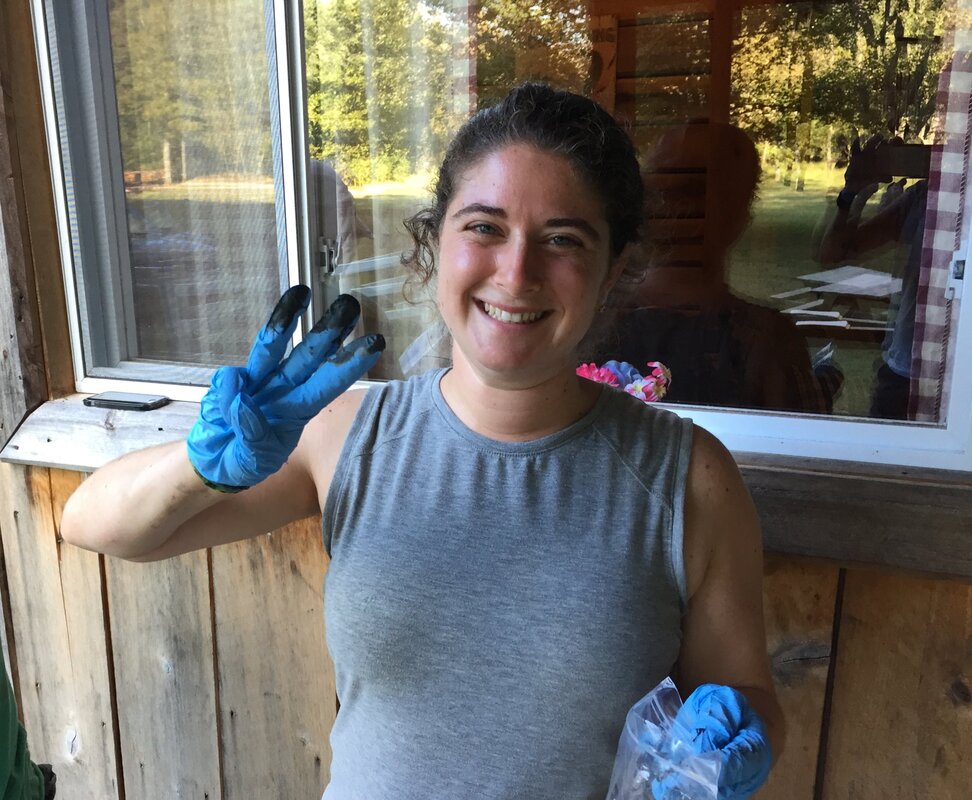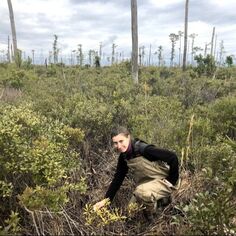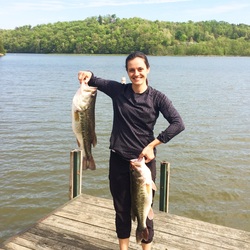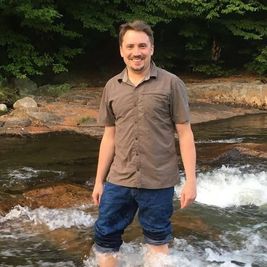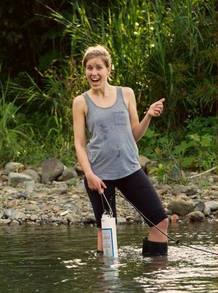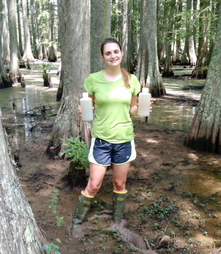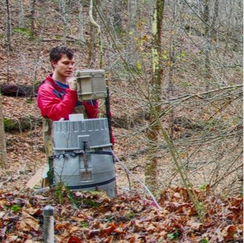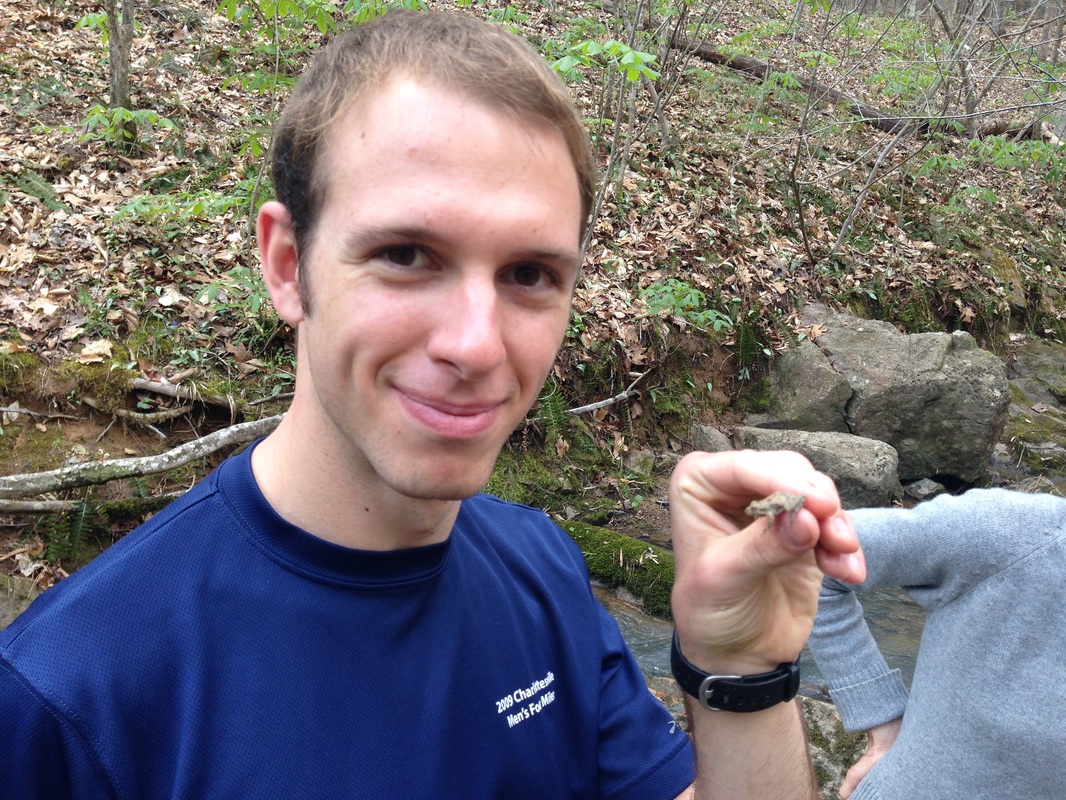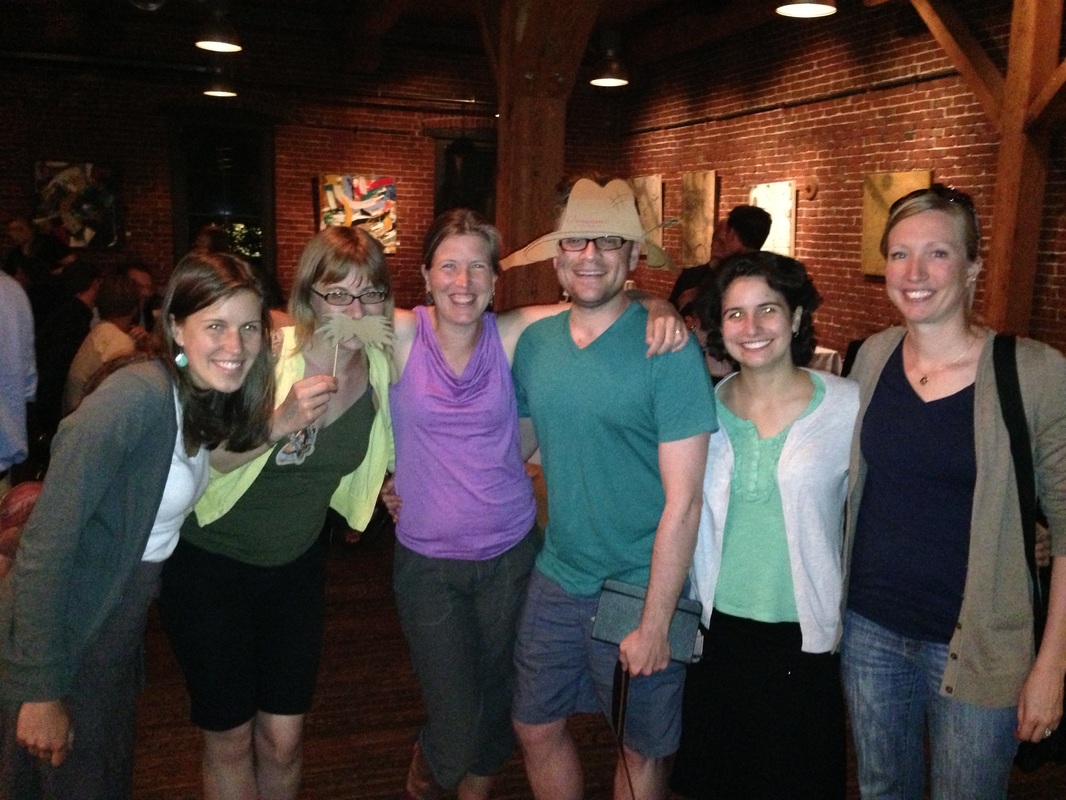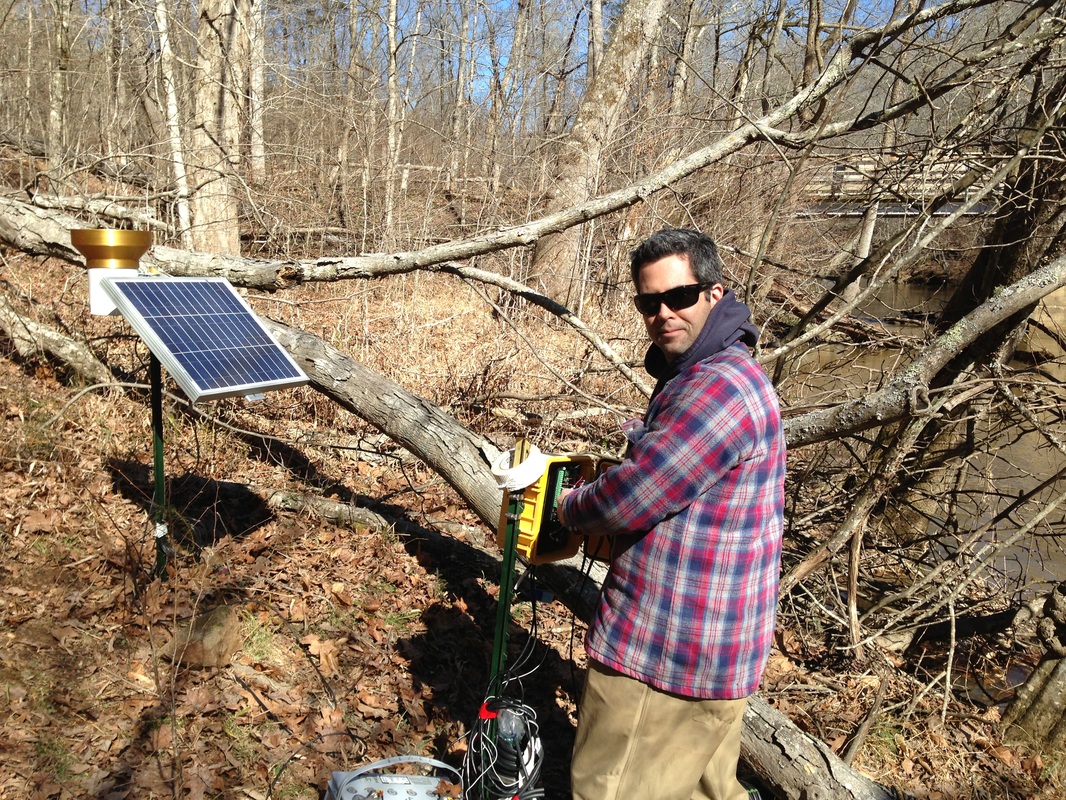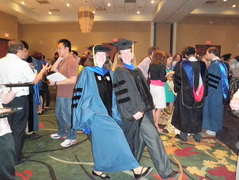Current Lab Members (listed in order of duration in the lab group)
Emily Bernhardt, PI
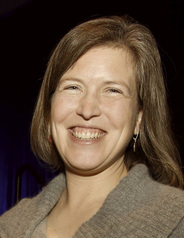
Emily received her PhD in Ecology and Evolutionary Biology from Cornell University in 2001 and has been a member of the Duke faculty since 2004. The core of Emily's interests are in watershed biogeochemistry, with most of her current effort invested in understanding how the ways in which people live on and use the landscape alters the structure, function and chemistry of receiving streams and wetlands. Emily teaches courses in General Ecology, Field Ecology and Biogeochemistry.
[Click here for Emily's professional CV and here for her bio]
ORCID page /ResearcherID / Google Scholar
Twitter account @DrBioGC
Brooke Hassett, River Center Lab Manager
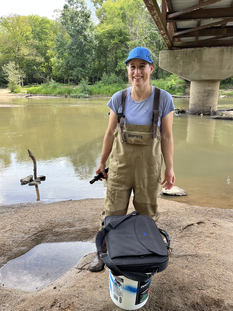
Mike Vlah, Data Scientist
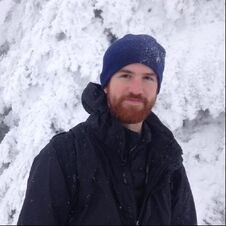
https://github.com/vlahm
Jonny Behrens, PhD student

Jonny’s website.
Spencer Rhea, PhD student (and former lab Data Scientist)
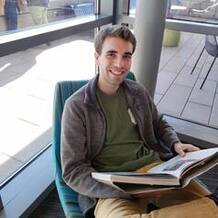
For his PhD, Spencer is interested in understanding how saltwater intrusion and sea level rise (SWISLR) are affecting soil and ecosystem carbon stocks and fluxes AND how soil chemistry interacts with SWISLR exposure to determine the relative resilience or vulnerability of organic matter and vegetation to salinization.
Spencer's GitHub
Spencer's LinkedIn
Kiera O'Donnell, Postdoctoral Scholar
|
Kiera joined the lab in June 2022. Here at Duke she will be coordinating the Saltwater Intrusion and Sea Level Rise (SWISLR) Research Coordination Network (www.swislr.org/).
Kiera earned her PhD in 2022 from Northeastern where she worked with Dr. Steven Scyphers and was a member of his Social-Ecological Sustainability lab. Her dissertation research focused on the landscape and social outcomes of Hurricane Irma in the lower Florida Keys and Hurricane Michael in the Florida Panhandle. Kiera holds a BS degree in Oceanography from the University of New England and previously worked at NOAA as a data analyst for sea level and storms. Kiera's Google Scholar Profile |
Shannon Plunkett, PhD student
|
Shannon is a PhD student in Duke's Civil and Environmental Engineering graduate program. In 2023 Shannon joined our lab and is now coadvised Helen Hsu Kim and Emily. Shannon is deeply interested in metal contaminants in ecosystems and is currently working on the impacts of mercury contamination arising from both small scale and industrial gold mining on rivers and people in the Madre de Dios region of Peru and old and new mining frontiers in Ecuador. Prior to beginning her PhD, Shannon earned a MS in Soil Science and an undergraduate degree from the University of Wisconsin, Madison. Shannon is the recipient of a NSF GRFP and is a former EPA ORISE scholar.
Shannon's Google Scholar Profile |
Adam Rok, Lab Manager
|
Adam joined the lab in May 2023. Here at Duke he is charged with keeping the lab humming and supporting all of the group's projects.
Adam earned a MS in Marine Science in 2019 and his undergraduate degree in Environmental Science with a minor in Marine Science in 2016 from UNC Chapel Hill. His masters research explored oxygen dynamics and modeling in the open ocean. In between his MS and joining DukeBGC he learned to raise hellbenders and to work with a wide variety of environmental sensors and samples in labs at Virginia Tech and NCSU. Adam's LinkedIn Profile |
Heili Lowman, Postdoctoral Scientist
|
Heili Lowman received her PhD in 2020 from the University of California in Santa Barbara where she worked with John Melack. Since graduating she has been a postdoctoral scientist with Joanna Blaszczak at the University of Nevada Reno. Heili is joining DukeBGC in March of 2024.
Heili's website |
2023-24 Research and Education Team Projects
Duke Data+ and Bass Connections Programs
You could be next!
LAB ALUMNIFormer PhD Students |
|
